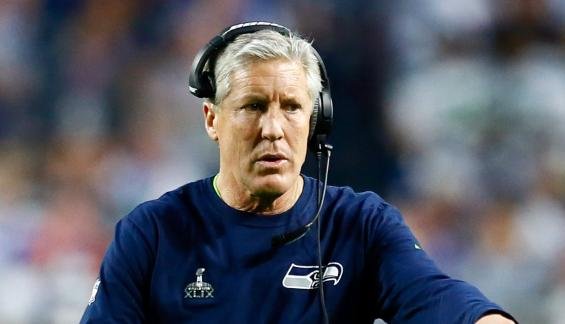After an amazing Super Bowl, Pete Carroll is looking like a lot of CEOs these days.
Why? He made the wrong call. Or did he?
As most of America knows, Pete Carroll is the coach of the Seattle Seahawks. In Sunday’s Super Bowl game against the New England Patriots, his team had a golden opportunity to win the game in the last minute. Near the goal line, he called a passing play for his team when “accepted wisdom” was to run the ball using their superstar back Marshawn “Beast Mode” Lynch. The Patriots intercepted the pass, ran out the clock, and won the game and the title.
The play was a gamble. Carroll admitted as much after the game. He thought the Patriots would be ready for a running play, and took a chance on a passing play. He took full accountability. Naturally, Pete’s being roasted on the Internet by Seahawks fans, who are using “idiot”, “brainless”, and “he should walk up to a cliff and keep walking” in their post-game commentary.
Here’s the thing. Like most of us in our business pursuits, he didn’t make the wrong call.
In order to get into the Super Bowl, Pete’s team needed to execute on one risky play after another to come from behind and beat the Green Bay Packers. He was hailed as a motivational genius. At the end of the first half of Sunday’s game, he took a risk by passing for a touchdown instead of settling for a sure-thing field goal. Chat boards were praising Pete as a master tactician.
Pete did what Pete does. He took calculated risks, and most of the time those risks work. A highly-visible risk didn’t, and now he’s an idiot.
But Pete’s track record with the Seahawks has been exemplary. The team is most notable for a sad-sack history of underperformance despite a hysterically loyal fan base. In five years, he’s turned them into one of the league’s most successful teams, and until Sunday, defending world champions. Had yesterday’s final play worked, and there is good reason to believe it might have despite its lack of conventionality, he would have remained the savant of five minutes ago. In today’s 24-hour news cycle, Mark Twain’s observation that “a lie can get around the world before the truth can get its pants on” has never been more true.
Here’s the point: solid managers take calculated risks– shots at helping their companies win big. When they pay off, we’re just doing our job. When they don’t, we should have known. Track records and steady progress mean nothing in the face of a high-profile failure.
The good news is that the Seahawks are run by a top management professional. Paul Allen, a founder of Microsoft, has no intention of doing anything but supporting his golden-egg-laying coach. Pete has no fear of losing his job, and can ignore the Monday morning quarterbacks who are suddenly howling for his scalp.
Can we say the same for the middle manager who passionately believes in a project, even if it runs counter to “the way we’ve always done it?” How about the CEO who makes several strategic moves that win, but one that doesn’t? Our business climate is one that has doesn’t know how to support appropriate risk without punishing the occasional loss– an environment that kills innovation and cedes markets to more nimble, forward-thinking competitors.
Which is why Pete will think things through, knock back some beers, and get to work on next year, even as Vegas oddsmakers establish his Seahawks as early favorites to win the next Super Bowl. May we all start supporting management in ways that encourage taking honest chances, driving true disruption, and rewarding the occasional failure.

